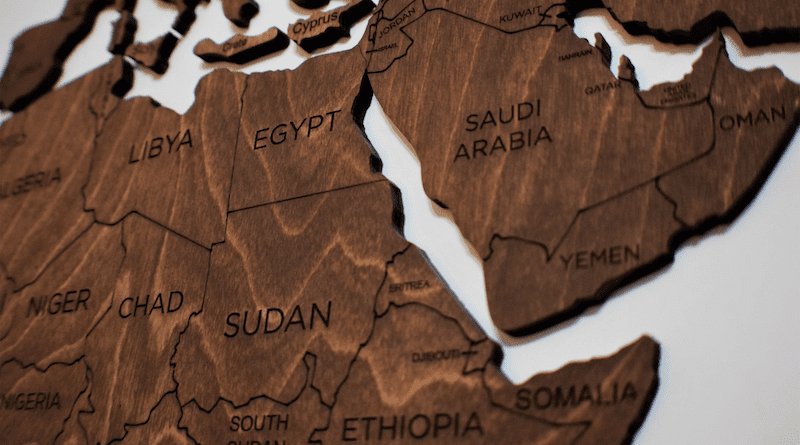MENA’s Socio-Economic Odyssey And Pakistan’s Journey Ahead – OpEd
The Middle East and North Africa (MENA) region is a diverse and dynamic area that faces many challenges and opportunities in the 21st century. The region not only has experienced political turmoil, social unrest, armed conflict, environmental degradation, and humanitarian crises in recent years, but has also witnessed remarkable achievements in human development, economic growth, technological innovation, and cultural diversity.
One of the key drivers of socio-economic development in the MENA region is the role of oil and gas resources, which account for a large share of the region’s exports, fiscal revenues, and GDP. The fluctuations in oil prices have a significant impact on the economic performance and prospects of the oil-exporting countries, especially the Gulf Cooperation Council (GCC) members: Bahrain, Kuwait, Oman, Qatar, Saudi Arabia, and the United Arab Emirates. These countries have benefited from a windfall in 2022 due to the recovery of oil prices from the pandemic-induced slump in 2020. However, they are also expected to decelerate in 2023 as oil prices moderate and production cuts are phased out.
The oil-importing countries in the MENA region, on the other hand, face different challenges and opportunities. These countries include Algeria, Djibouti, Egypt, Iran, Iraq, Jordan, Lebanon, Libya, Morocco, Palestinian Territories, Syria, Tunisia, and Yemen. They have been affected by various factors such as political instability, social discontent, security threats, currency depreciations, fiscal pressures, external imbalances, and COVID-19 outbreaks. Some of them have also suffered from double-digit food inflation in 2022, which has exacerbated food insecurity and poverty among their populations.
Despite these difficulties, some of the oil-importing countries have also shown resilience and potential for socio-economic development. For example, Egypt has achieved robust growth of 5.6% in 2022 thanks to its diversified economy, structural reforms, and prudent macroeconomic policies. Morocco has also maintained a positive growth rate of 4.8% in 2022 due to its strong agricultural output, export performance, and public investment. Djibouti has continued to benefit from its strategic location as a regional hub for trade and logistics.
The socio-economic developments in the MENA region offer valuable lessons for Pakistan, which is a country that shares some similarities and differences with its MENA counterparts. Pakistan is also an oil-importing country that faces challenges such as fiscal deficits, external imbalances, debt burdens, inflationary pressures, social inequalities, and security risks. Pakistan has also been hit hard by the COVID-19 pandemic and its economic consequences. However, Pakistan also has opportunities for socio-economic development such as its large and young population, its strategic location as a gateway to Central Asia and China, its rich natural resources and agricultural potential, and its vibrant civil society and cultural diversity.
Some of the lessons that Pakistan can learn from the MENA region are:
- Diversify the economy away from dependence on oil and gas or other volatile commodities. This can help reduce exposure to external shocks and create more sustainable sources of growth and employment. Pakistan can leverage its comparative advantages in sectors such as textiles, leather goods, sports goods, IT services, tourism etc.
- Invest in human capital development through improving access to quality education, health care, social protection, and gender equality. This can help enhance productivity, innovation, and social cohesion.
- Pakistan can benefit from the best practices and experiences of some of the MENA countries that have achieved remarkable progress in human development indicators such as literacy, life expectancy, and gender parity.
- Promote regional integration and cooperation through enhancing trade, investment, infrastructure, and people-to-people ties with neighboring countries. This can help foster mutual trust, peace, and prosperity.
- Pakistan can take advantage of its strategic location and participate more actively in regional initiatives such as the Belt and Road Initiative (BRI), the China-Pakistan Economic Corridor (CPEC), the South Asian Association for Regional Cooperation (SAARC), and the Economic Cooperation Organization (ECO).
- Address fragility and conflict through strengthening governance, rule of law, accountability, and civic participation.This can help prevent violence, corruption, and extremism, and protect human rights and democracy.
- Pakistan can learn from the challenges and successes of some of the MENA countries that have undergone political transitions and reforms or have dealt with humanitarian crises and post-conflict reconstruction.
The socio-economic developments in the MENA region offer important insights and implications for Pakistan’s own development journey. Conflict ridden states of Middle East stood above the rubble of socioeconomic disparities and proved their worth; some of these countries have had worse socioeconomic indicators than Pakistan currently has. This offers Pakistan hope that it too can stand in the face of difficulties and come out a winner.
*Author is Ph.D. Scholar (SPIR-QAU) and has worked on various public policy issues as Policy Consultant in National Security Division (NSD), Prime Minister Office (PMO). Currently, she is working at Islamabad Policy Research Institution (IPRI) as Policy Consultant. Her work has been published in local and International publications. She can be reached at [email protected]. Twitter: @NoureenAkhtar16

